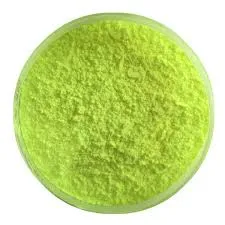The Role of Plastic Additives in the Automotive Industry
In the ever-evolving landscape of automotive manufacturing, the use of plastics has become increasingly prevalent. This trend is driven by the need for lighter, more efficient, and durable materials that can withstand the demands of modern vehicles. One key aspect of utilizing plastics in the automotive sector is the incorporation of plastic additives. These additives play a vital role in enhancing the properties of plastic materials, ensuring they meet the rigorous standards required for automotive applications.
Understanding Plastic Additives
Plastic additives are substances added to polymer formulations to impart specific properties or enhance existing characteristics of the base plastic. They can be classified into several categories, including stabilizers, fillers, impact modifiers, processing aids, and colorants. Each type of additive serves a unique purpose and contributes to the performance, appearance, and manufacturability of the plastic used in automotive components.
Types of Plastic Additives
1. Stabilizers These additives help protect plastics from degradation caused by ultraviolet (UV) light, heat, or oxidation. In automotive applications, stabilization is crucial to preventing discoloration and loss of mechanical properties over time, especially in exterior components exposed to the elements.
2. Fillers Fillers are used to improve the physical properties of plastics, such as stiffness, strength, and thermal resistance. Common fillers include talc, calcium carbonate, and glass fibers. Incorporating fillers can also reduce production costs by decreasing the amount of expensive resin required in the formulation.
3. Impact Modifiers These are essential for enhancing the toughness and impact resistance of plastics. In automotive applications, where safety is paramount, impact modifiers ensure that components can withstand crashes and other impactful forces without breaking.
4. Processing Aids These additives facilitate the manufacturing process by improving the flow of polymers during molding and extrusion. They help reduce processing times and enhance the quality of the final product.
automotive plastic additives

5. Colorants Aesthetics play a significant role in automotive design. Colorants allow manufacturers to achieve the desired appearance for various components, from interior furnishings to exterior body panels.
Importance of Additives in Automotive Applications
The automotive industry is characterized by its rigorous standards and the need for high-performance materials. Plastic additives are essential for ensuring that plastics meet these requirements. For instance, components such as bumpers, dashboards, and door panels need to maintain their integrity over extended periods and under various environmental conditions. Additives enhance the durability, safety, and performance of these components, contributing to the overall quality of the vehicle.
The use of plastic additives also aligns with modern trends in sustainability. As manufacturers aim to reduce vehicle weight to enhance fuel efficiency and reduce emissions, lighter materials are required. By modifying plastic formulations with additives, manufacturers can achieve the desired balance of strength and weight, ultimately leading to more efficient vehicles.
Innovations in Plastic Additives
Recent advancements in plastic additive technologies have focused on improving their performance and sustainability. For example, bio-based additives are gaining traction, providing a more environmentally friendly alternative to traditional petrochemical derivatives. Additionally, the development of multifunctional additives that combine several beneficial properties into one formulation is becoming increasingly popular.
Moreover, the automotive industry is seeing a push towards recycling, leading to the creation of additives that enhance the recyclability of plastic materials. Incorporating recycled content into new products not only supports sustainability goals but also opens new avenues for cost savings in manufacturing processes.
Conclusion
In conclusion, plastic additives are integral to the automotive industry, enabling manufacturers to achieve high-performance materials that meet stringent safety, durability, and aesthetic requirements. As the industry continues to evolve, the role of these additives will further expand, driven by innovations aimed at sustainability and efficiency. In an age where environmental concerns are paramount, the continued development of advanced plastic additives will be crucial for the future of automotive design and manufacturing. Embracing these technologies not only enhances product performance but also minimizes the environmental footprint of vehicles, contributing to a more sustainable automotive ecosystem.

